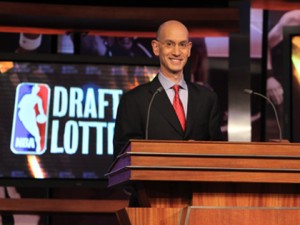 We hope you enjoyed Part I of Accelerated Tanking – A David Stern Legacy. In Part II we will examine the flaws with the draft lottery, and suggest some improvements. The 2013-14 season has been dominated with talk of “tanking”. We believe that come June there will be pressure from some quarters to scrap or modify the current lottery system, having a new commissioner onboard may conceivably allow that to happen. Is there an event in the near future that will lead to reform? The tipping point may occur on May 20, 2014 in New York City at the ABC/Disney Times Square Studio:
We hope you enjoyed Part I of Accelerated Tanking – A David Stern Legacy. In Part II we will examine the flaws with the draft lottery, and suggest some improvements. The 2013-14 season has been dominated with talk of “tanking”. We believe that come June there will be pressure from some quarters to scrap or modify the current lottery system, having a new commissioner onboard may conceivably allow that to happen. Is there an event in the near future that will lead to reform? The tipping point may occur on May 20, 2014 in New York City at the ABC/Disney Times Square Studio:
 Commissioner Adam Silver: “….and the 4th pick in the 2014 NBA Draft goes to…….The Milwaukee Bucks”
Commissioner Adam Silver: “….and the 4th pick in the 2014 NBA Draft goes to…….The Milwaukee Bucks”
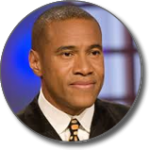 ESPN’s Mark Jones: “And then there were three! We’ll be right back after this timeout to learn who will receive the top three picks in the 2014 NBA Draft!”
ESPN’s Mark Jones: “And then there were three! We’ll be right back after this timeout to learn who will receive the top three picks in the 2014 NBA Draft!”
(Ten Minute Commercial Break)
 Silver: “and the 3rd pick in the 2014 NBA draft goes to……The Orlando Magic”
Silver: “and the 3rd pick in the 2014 NBA draft goes to……The Orlando Magic”
 Silver: “and the 2nd pick in the 2014 NBA draft goes to……The Boston Celtics”
Silver: “and the 2nd pick in the 2014 NBA draft goes to……The Boston Celtics”

“Oh Oh Oh…..Oh Yes! Yes! Yes! Phil! Yes! Yes! Yes! Yes!” (orgasmic screams from Jeanie Buss flood the studio)
 Silver: “and the 1st pick in the 2014 NBA draft goes to…..The Los Angeles Lakers”
Silver: “and the 1st pick in the 2014 NBA draft goes to…..The Los Angeles Lakers”
Yes, that could be the outcome of your 2014 NBA draft lottery. And the results likely wouldn’t be rigged, as the Lakers and Boston continue their climb in the lottery seed rankings, earning more combinations with each loss.
If such an outcome occurs we predict it will be a tipping point for reform of the current lottery system, just as the prior outcomes in 1984 and 1993 sparked overhauls of the system. The cumulative effect of teams starting to tank for the 2014 draft a year prior, combined with an outcome where LA and Boston walk away with the prizes of the draft would be too much for the rest of the league to accept. With David Stern gone, the cries will go out for reform.
How can we solve some problems of the current system?
Everyone and their brother has weighed in this year with ideas on how to solve the problems created the ghosts of lotteries past. We think we’ve got a good compromise, and we’ll explain how our solution solves some common lottery problems. With these reforms, we believe that the system will do what it was supposed to do – distribute the top draft picks to the worst franchises, while improving incentives for regular season competition.
Problem One: “We’re jealous because the same team got the #1 overall pick in consecutive years” problem.
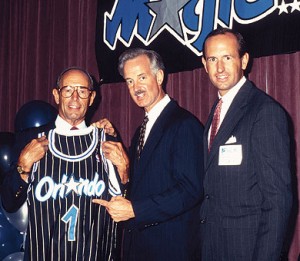 As we discussed in Part I, David Stern created the lottery as a result of other teams in the league being upset with the tanking undertaken by the 1983-84 Houston Rockets, who positioned themselves for Hakeem Olajuwon and thus back-to-back #1 overall picks. The lottery hasn’t solved that problem, as we saw from the outcome below:
As we discussed in Part I, David Stern created the lottery as a result of other teams in the league being upset with the tanking undertaken by the 1983-84 Houston Rockets, who positioned themselves for Hakeem Olajuwon and thus back-to-back #1 overall picks. The lottery hasn’t solved that problem, as we saw from the outcome below:
1993 Orlando Magic: In 1993 the Magic finished 41-41 and were the team on the rise, with rookie, and 1992 number one overall pick, Shaquille O’Neal. They had only 1 out of 66 lotto balls in the 1993 lottery, and yet improbably their ball came up first, giving them the number one overall selection for two years running. The result sparked an outcry, with charges of unfairness from other envious franchises, forcing the NBA to modify the lottery odds further, and make it even harder for lower lotto seeds to obtain the #1 overall pick.
The phenomenon of the same team winning the lottery in consecutive years can still occur, no matter how the NBA changes the weighting of the lottery combinations. It could happen this year, should the Cavaliers win the lottery, at which point fellow lotto participants (and their fan bases) will again file protests of inequality. Granted, Cleveland may have botched the 2013 #1 overall pick by selecting Anthony Bennett, regardless of that however having the #1 overall pick is a huge public relations and cash boost for any franchise.
Solution: If the goal is for the league to spread the wealth to downtrodden franchises, this result probably shouldn’t happen. The public relations cache and cash afforded by having the #1 overall pick shouldn’t go to the same team in consecutive years by virtue of a random drawing. Let’s fix this problem very easily with a simple rule: No team can obtain the #1 overall pick two years in a row. This prevents the 1993 Orlando problem from occurring again. Had this simple rule been in place in 1984, Portland is drafting Hakeem, and the draft lottery is never created in the first place.
Problem Two: “Our Superstar is Hurt This Year – Let’s Tank!”
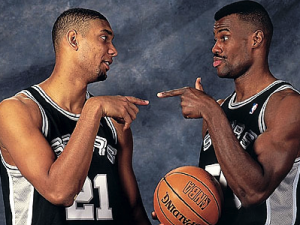 In these situations you essentially had a championship caliber team, or a team already possessing a superstar, or a recent NBA champion, who wanted to tank and quickly use the lottery to rebuild. Here are a few of the league’s favorites that we keep talking about year after year but never fix.
In these situations you essentially had a championship caliber team, or a team already possessing a superstar, or a recent NBA champion, who wanted to tank and quickly use the lottery to rebuild. Here are a few of the league’s favorites that we keep talking about year after year but never fix.
1997 Spurs: All NBA center David Robinson was injured for much of the 1996-97 NBA season, and as a result the Spurs essentially took the year off, finishing with a 20-62 record and the third most lottery combinations. Their “efforts” paid dividends, as they jumped into the #1 spot and selected Tim Duncan, who when combined with Robinson won a title two years later. (Sidebar-has anyone noticed that somehow the Spurs, Rockets, Magic and Lakers have ended up with the vast majority of the great big-men over the last 30-years? Whether via draft, free agency, or trade, they seem to end up on those four cities, which perhaps foreshadows Joel Embiid going to the Lakers or Magic in 2014, but we digress.)
2008 Heat: Miami did something similar in the 2007-08 season when Dwayne Wade played in only 49 games, and Pat Riley aimed the team for the high lotto. The Heat finished with a league worst 15-67 record and obtained the 2nd overall pick. While Michael Beasley never fulfilled his promise, the Heat were only two years removed from winning the NBA title, and still had Dwayne Wade entering his prime. They were hardly a “team of need.” Of course the Heat fans would argue that they should have gotten the #1 overall pick that season, and thus Derrick Rose rather than have the Chicago Bulls improbably leap-frog them from the 8th lotto seeding position, but we’ll address that situation further down.
Solution: Have the seeding for the lottery be done on the basis of cumulative two-year records. This way, we’ve prevented the problem above from occurring. We maybe even would prevent a 2014 problem, as the Lakers are accumulating lottery combinations while Kobe Bryant sits on the bench.
Would using two-year cumulative records be fair to teams like the Lakers, who would argue that Kobe is on his last legs anyway? Or to a team like the Heat, who suffered a historically bad 15-67 season? We’d ask the question the other way around. Is it fair to a downtrodden team like the Bucks, who have actually tried to compete hard in recent years, to then have recent NBA champions with Hall of Fame players still on the roster bypass them in the draft selection order?
If we simply limit the lotto participants based on cumulative two-year records we’d eliminate this situation, and the teams and their fan bases most in need of a helping hand would get the highest picks. We emphasize the term “fan bases” in the sentence above for a very important reason, because we’ve heard from some quarters that it wouldn’t be fair to keep rewarding badly run teams with high draft picks year after year. Well, let’s think about the fans of those teams. Can they change their poorly run front offices? Can they oust their owners? Of course not, so let’s not penalize those fans since they would be suffering enough already in order to qualify for the lottery, based on cumulative two-year records that are likely terrible.
The NBA has talked at length about how to equalize the playing field for small markets; who are not able to trade for a superstar, nor sign one in free agency. Unfortunately there really isn’t much they can do about this situation save for a hard salary cap and franchise tag, which the players union has never allowed. This problem isn’t limited to just small markets though, as franchises like Detroit and Atlanta also have their challenges competing against the glamour markets using free agency and trades. The only real vehicle these markets have at their disposal is the draft. So why would the league then want to maintain a draft lottery system that allows the glamour markets to quickly implement a tank and/or get lucky in the lotto drawing and leapfrog over these other teams for draft picks? If the Lakers and Heat want to get top draft picks make them do it the way the rest of the league does, by being a really bad team over a period of time. With our proposed lottery reforms, the glamour franchises have the exact same ability to use the draft as any other team. The just won’t be able to reload as quickly as they might under the current system, but they have trades and free agency to accomplish that if they so choose.
Problem Three: The Random Jumper Displaces The Worst Teams
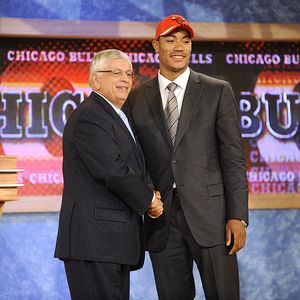 We’ve seen this one before as well. The random team with low lottery odds leapfrogs up to a top-three pick, and in the process pushes down teams that perhaps need a top pick more. We can cite the 1993 Orlando Magic jumping to the top pick on one a 1 in 66 chance to get the Chris Webber pick, the 2008 Bulls moving from lotto seed 8 to the #1 overall pick to get Derrick Rose, or the 2011 Clippers (Cavaliers) jumping from 8 to 1 to get Kyrie Irving. Our own Milwaukee Bucks were a random jumper in 2005, as the team finished an 8-4 hot streak in February, before deciding to strip it down at the trade deadline and tank hard for the remainder of the season. They were rewarded for this with the #1 overall pick, pushing down the league worst Atlanta Hawks (13 wins) to the second pick.
We’ve seen this one before as well. The random team with low lottery odds leapfrogs up to a top-three pick, and in the process pushes down teams that perhaps need a top pick more. We can cite the 1993 Orlando Magic jumping to the top pick on one a 1 in 66 chance to get the Chris Webber pick, the 2008 Bulls moving from lotto seed 8 to the #1 overall pick to get Derrick Rose, or the 2011 Clippers (Cavaliers) jumping from 8 to 1 to get Kyrie Irving. Our own Milwaukee Bucks were a random jumper in 2005, as the team finished an 8-4 hot streak in February, before deciding to strip it down at the trade deadline and tank hard for the remainder of the season. They were rewarded for this with the #1 overall pick, pushing down the league worst Atlanta Hawks (13 wins) to the second pick.
The random “jumper” situation creates two problems. A team that perhaps doesn’t “need” the top overall pick ends up with it. Secondly lesser teams all get pushed down a position in the draft order, resulting in statistically lower odds of obtaining a great player via the draft.
The Solution: In addition to having a screen of a two-year cumulative record to qualify the lotto, we limit the lottery participants to only 7 teams. The top seven picks in the draft will be determined via the lottery, with selections 8-30 based on the current regular season record. With these lottery changes, we are going to weed out most of the outliers and random outcomes that have infuriated franchises and their fans in the past. The teams in the seven slot lottery are likely going to be the most downtrodden franchises and corresponding fan-bases, who need the most help.
How would this new system play out this season?
For purposes of calculating the lotto participants, we are assuming the season ended on January 31, 2014, and are using a teams total wins at that time, combined with their wins from the 2013-14 season. Here is how things would look:
| The Seven Participants in the 2014 Lottery | |||
| Team | 2012-13 Wins | 2013-14 Wins * | Cumulative Wins |
| Orlando | 20 | 13 | 33 |
| Cleveland | 24 | 16 | 40 |
| Charlotte | 21 | 21 | 42 |
| Sacramento | 28 | 15 | 43 |
| New Orleans | 27 | 19 | 46 |
| Milwaukee | 38 | 8 | 46 |
| Detroit | 29 | 18 | 47 |
| *Wins at January 31, 2014. For discussion purposes only. New system would use full season results | |||
But doesn’t that list still have some inequities in it?
Yes, it does, and that is why those seven teams in the lottery are going to participate in a weighted draw, whereby only 25% of your weighting is based on the prior year record, and 75% weighting is given to the current year record. This means that improved teams like New Orleans and Charlotte have less lotto combinations than teams like Milwaukee, Sacramento and Orlando.
Note that Philadelphia (with only 15 wins at the end of January) would be cut out of the lottery. Fans in Philadelphia may say “We stink! Why are we being cut out of this arbitrarily?” Our response is two-fold:
First: We aren’t promising a perfect system. Just a better one. The only real pressure point on our revised lottery is that cut-off between the 7th seed who gets in the lottery, and the 8th seed, who doesn’t qualify. There will potentially be some tanking gamesmanship around this position each year. But remember, we are using cumulative two-year records. The gamesmanship should be between two teams that have likely been bad for the prior two seasons. Rewarding one of these teams likely won’t be nearly as inequitable as some of the other outcomes that have occurred in lotteries past.
Second: Philadelphia made a conscious decision last summer to toss away the 2013-14 season in advance, by trading their young all-star point guard, Jrue Holiday, for an injured Nerlens Noel. If your franchise makes the decision to rebuild, it should be long-term decision and not something that you pull on a whim, due to a strong draft class that year. Philadelphia will likely have a much better chance at a higher pick next season, when presumably they’ve been poor for two consecutive years. Further, they may still be able to qualify for this year’s lottery, as our hypothetical only uses results through January 2014.
Will This Solve Everything?
No, of course not. As quickly as you can say “Shark Tank!” we are sure that a savvy owner like Mark Cuban will try to figure out some loopholes and exploit them. That said, our system solves a number of problems:
1) Truly bad teams and their fan bases will get better draft picks with much more regularity. Isn’t this the purpose of the draft?
2) Teams that want to engage in a “one-year” or “half-year” tank won’t be able to do it. As we head into the home stretch of the 2014 season, we are likely to see extremely poor basketball, as numerous teams continue their tanks. By using two-year cumulative records, teams like the Celtics will have to think twice before they sell off their coach and Hall of Fame players before the season even began. Ditto for the Lakers, who may sell off Pau Gasol at the trade deadline. Are the Lakers and Celtic fans going to be mad about a new system like this? Of course, but both franchises will still will likely obtain a top-ten pick. Additionally, both teams have won titles recently and have (had) superstars capable of drawing crowds. We think the Charlotte franchise and fan base deserve a higher pick more, even if Michael Jordan and Rich Cho botch the selection.
3) Trade deadline transactions will be made with a longer-term view. We’ve talked about the possibility of the Lakers and Celtics getting the top two picks as a reason that might bring about reform. The upcoming trade deadline might be another tipping point. It is plausible that we see a number of franchises sell off good players for pennies on the dollar, in order to better their lotto position, resulting in an even less competitive end to the 2014 regular season.
Are we against teams selling off their assets at the deadline? Not at all. Making a decision to rebuild at the trade deadline can make perfect sense in certain circumstances. However, the new lottery system will make a team think twice about exactly how large a fire sale they conduct. Arguably competition post all-star break will be slightly better, as teams might be more hesitant to dump their roster to engage in a belated tank.
Summary
There will be inequalities in any system. Further, smart teams will find loopholes and poorly run franchises will continue to draft Anthony Bennett number one overall. That said, the lottery that David Stern introduced 30-years ago is in need of some reform. Tanking, whether real or imagined has been too dominant a theme in the NBA the past twelve-months, and it has detracted from the game. We think the inaugural off-season of new NBA Commissioner, Adam Silver, may be a perfect time to reform the draft lottery circus that was created by his predecessor, and in the process return the draft to what it was meant to be – the vehicle by which poor teams could have a greater chance to rebuild, and a chance to get back to the top of the standings.
